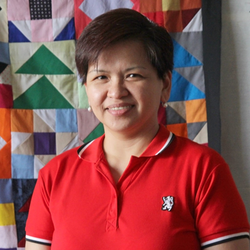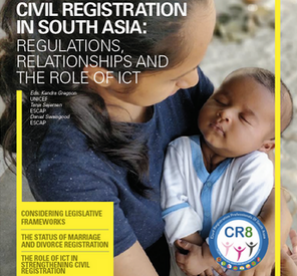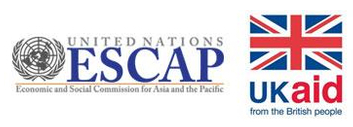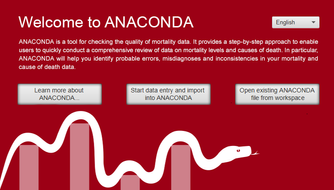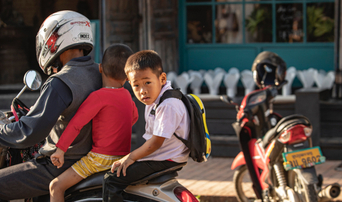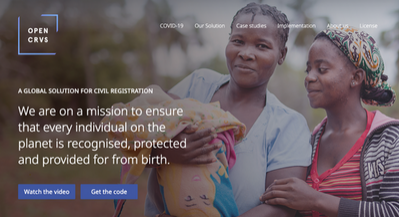(Newsletter: CRVS Insight November 2021)
Each month, our community newsletter puts a spotlight on one person from Asia-Pacific who has gone above and beyond in their efforts to support CRVS programmes, raise awareness of CRVS issues or lead CRVS improvement efforts in their home country. This month we are happy to highlight Ms. Luz Indah Abayan.
What is your current title and role?
I am currently a Program Officer at Child Rights Coalition Asia (CRC Asia). As such, I am fortunate to have been assigned to coordinate CRC Asia’s projects related to issues of Civil Registration and Vital Statistics (CRVS) with its partner organizations such as UN ESCAP, World Vision International (WVI), and different country partners in the region.
Can you please share with us a particular experience which highlighted the importance of CRVS to you?
I realized the importance of CRVS even before I learned what the acronym of CRVS stands for. In my 2 decades of experience working in or with the government, the consistent demand for evidence-based policy decision-making and programming of public services always called for an updated database about the conditions of the public.
While working as Planning Officer for a public school, I found that the success in the implementation of programs and the efficient allocation of public budgets always depended on how these have been made responsive to the needs of the school’s beneficiaries and other stakeholders. And while working as an advocate for public investments in children, I learned that it is important for a government’s finance management system to be anchored on a live database about its population, efficiently segregated to enable public programs and services that progressively address the priority needs of children in different conditions and situations.
In both these experiences, a well-functioning CRVS system is indispensable to achieve inclusive and responsive public governance.
How are you currently involved in CRVS improvements?
As CRC Asia’s focal person on CRVS issues, I am assigned to coordinate with country partners, including children, youth, and members of civil society organizations, in the conduct of consultations and regional forums aimed at gathering their experiences, views and recommendations for the improvement of CRVS systems in the region.
How would you like to see CRVS in Asia and the Pacific develop by the end of the CRVS Decade?
By 2024, I hope to witness CRVS systems that meaningfully engage children, not only as respondents in surveys, but as integral part of the peoples’ consultations related to the establishment, implementation, monitoring and improvement of its processes.
In the same year, I would also like to see CRVS systems and procedures made available in the different languages and forms of communication. I have learned so much from the valuable contributions of adults who provided valuable support to children as they participate in discussions about CRVS systems. Their support included the provision of translation from English to local languages and sign language interpretation. Without these, CRVS will continue to appear irrelevant, especially to families without access to basic education, residing in areas without nearby registration centers and are preoccupied by issues of survival.
I strongly believe that “leaving no one behind” should come with both a commitment and an action to facilitate information and education campaigns about the relevance of CRVS systems in the realization of everyone’s rights. And such action should include the use of different languages and forms of communication accessible to different communities and individuals.
What advice would you give to others trying to improve CRVS systems?
Governments and its different partners, including civil society organizations, will need to put premium in making CRVS systems understandable, accessible and relevant to each and every individual. Access to such information is a prerequisite to have everyone in CRVS systems and be part of a better and more sustainable future for all.


